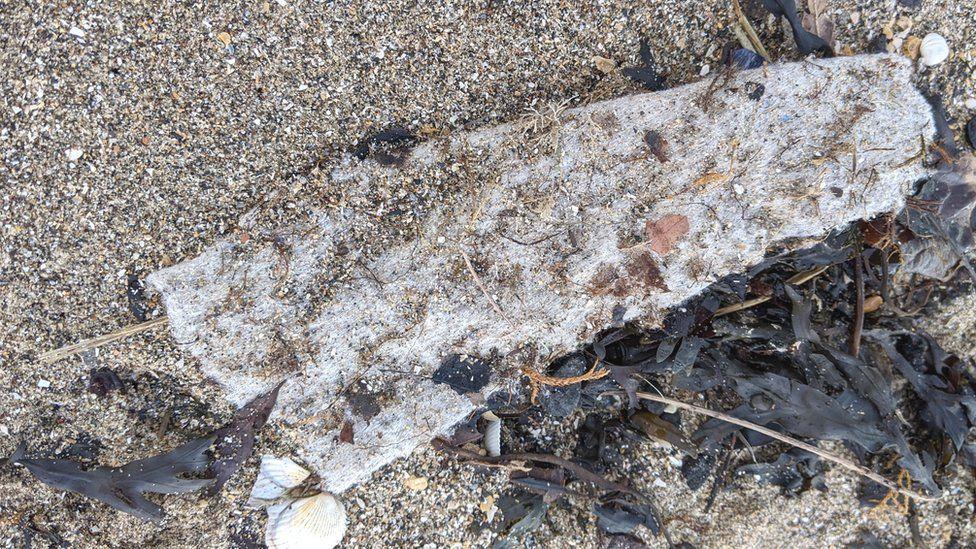Harmful bacteria survives longer on plastic Scottish beach waste
- Published

Wet wipes flushed down the toilet can end up on beaches
Bacteria on wet wipes and cotton buds washed up on Scottish beaches can survive long enough to pose a risk to human health, researchers have found.
A Stirling University team found, external "concentrated reservoirs" of faecal bacteria on plastic waste on 10 beaches along the Firth of Forth estuary.
It found that bacteria such as E. coli were binding to the plastic more often than natural material like seaweed.
The team said the volume of waste discovered was "shocking".
Prof Richard Quilliam, who led the team, said: "We expected to collect a few wet wipes everywhere, but the team came back with bags of them."
Severe upset stomach
The sites included bathing water beaches at Abderdour Silver Sands and Portobello.
The professor said: "There has been much coverage recently of sewage waste being directly discharged into rivers and the sea, especially after heavy rain when some sewage treatment plants exceed their capacity for effective treatment.
"Some of the plastic waste we have recovered could be from legacy sewage spills that have persisted in the environment, but the volume of waste we are seeing is shocking."

Prof Richard Quilliam said his team had recovered a shocking amount of waste
The team found evidence that species of vibrio, a naturally-occurring bacteria, some strains of which can cause a severe upset stomach, were able to colonise wet wipes.
They also found high rates of resistance to antibiotics present in the bacteria on the wipes and cotton bud sticks.
The research is part of the £1.85m Plastic Vectors project, which is funded by the Natural Environment Research Council (NERC).
It is investigating how plastics in the environment can help transport bacteria and viruses, and the impact that may have on human health.